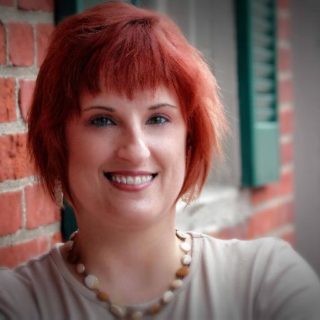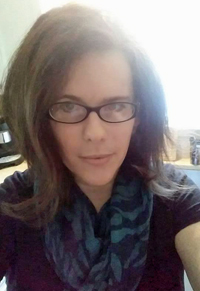Maria Grace Though Maria Grace has been writing fiction since she was ten years old, those early efforts happily reside in a file drawer and are unlikely to see the light of day again, for which many are grateful. After penning five file-drawer novels in high school, she took a break from writing to pursue college and earn her doctorate in Educational Psychology. After 16 years of university teaching, she returned to her first love, fiction writing. She has one husband and one grandson, two graduate degrees and two black belts, three sons, four undergraduate majors, five nieces, is starting her sixth year blogging on Random Bits of Fascination, has built seven websites, attended eight English country dance balls, sewn nine Regency era costumes, and shared her life with ten cats. We are so fortunate to have the very gifted writer Maria Grace (4 X B.R.A.G.Medallion Honoree author!) join us today to share some thoughts and information about her very successful blog. Marie, I love your website! I am a fan of your books and always look forward to posts and info you share on your site. There are so many different types of websites from authors- some…
Whose Voice Gets To Represent Race In Our Literature?
Thanks to indieBRAG author Lorraine Devon Wilke for allowing us to share her blog post from Rock, Paper, Music indieBRAG Storytellers are the chroniclers of our life and times. They memorialize history, dissect our complex and evolving world; they entertain and provoke and captivate. They are as diverse and eclectic as the characters they create and the stories they tell. It is their job to reflect who we are, what we experience, and what we can imagine. That’s a big canvas. It’s huge. And there’s no end to the variety of colors and hues that can be drawn upon it. Just as there is no end to the variety of artists weaving the tales drawn there. Yet some believe there are rules to who gets to use which colors, who gets to draw outside the lines to tell stories that involve characters from different cultures. Some believe issues…
Ingredients In Story-Telling That Impact A Reader’s Imagination
Clare Flynn Award winning author and 3 time B.R.A.G. Medallion Honoree, Clare Flynn is sharing here thoughts on creating a great story. Thank you for sharing with us Clare- What are the steps in creating a setting for your story? My start point with a book is usually setting. My imagination is captured by a particular location. There will be something specific that is the source of its appeal to me as a writer and then I think how I can bring that to life on the page. I then imagine a character within this setting and let my imagination go from there. Sometimes I will have visited a location – perhaps on holiday – or in the past on a business trip, and having been inspired by it, I may return to spend more time there. On the return visit I’m gathering detail and texture to bring the setting to life on the page. This may include sounds – what can I hear that makes this place different? smells – everywhere has its special smell – what is this one? touch – how can I pull in sensory imagery that evokes what it is really like to be there?.…
Ingredients In Story-Telling That Impact A Reader’s Imagination
Anna Castle on Marketing Definition of marketing by Merriam Webster: The act or process of selling or purchasing in a marke; The process or technique of promoting, selling, and distributing a product or service. An aggregate of functions involved in moving goods from producer to consumer. For most authors who love writing, marketing is the most difficult and least enjoyable part of being a self-published author! We have invited author multi award winning B.R.A.G.Medallion Honoree author, Anna Castle here to share some of her thoughts on the process- When partnering up with other authors for cross promotions, what is the outcome of this and is this something you recommend doing on an ongoing basis? I haven’t done this, apart from a series of Christmas blog posts. That was fun, but I don’t think it had any effect on my sales. Still, it’s well to remember that publicity means getting your name out there, while marketing consists of specific efforts to boost sales. Or that’s how I’ve learned these lessons. What are some ways that were successful in marketing your book? The best results I’ve had in terms of sales & downloads have come from using newsletter ad services to promote a discount. I’m not big enough…
What’s a Beta Reader and how do you find them?
Beta Readers A Beta reader, also known as a pre-reader, is an essential component that all authors should consider utilizing. Beta readers are defined as non-professional. They are readers who enjoy reading and who want to help writers be successful. (In truth, we want to read the book first and watch the creative process in action and feel like we helped.) Beta readers will look over written materials for plot errors, grammar and spelling errors, issues with character development and suggestions to improve the book. Included in their services, they can also be fact checkers; however, if you need to designate one as a fact checker communicate that to the person. They are a wonderful resource that is gaining in popularity due to the ease of finding and communicating with folks who are truly interested in seeing a writer succeed. But why should anyone use beta readers? Beta readers don’t have to be nice to you, they do not have a close or personal relationship with you like family members, spouse or even good friends. They will give you honest feedback that you must evaluate and either take their suggestions seriously or not. Let’s be honest here, as a writer…
Did you know that many of our indieBRAG readers are authors? Why should that matter?
I read an interesting article the other day about the importance of authors reading books – even if they don’t like to read. Does that strike anyone else as very strange-- Not the importance of reading, but an author not liking to read? How can an author write a compelling story and expect readers to enjoy their work if they don’t enjoy reading? Mind boggling. Reading for indieBRAG gives a reader an opportunity to analyze both the good and not so good attempts at writing a worthy book. I have often been told by authors that after reading a book for indieBRAG they have gone back to change things in their current works. It is not uncommon to find things they don’t particularly like only to realize they have committed the same error in their writing. So, you see, it isn’t important to only read the great classics, but to also learn from those who are trying to appeal to your audience as an author. Stephen King has also said in his book on writing: “The real importance of reading is that it creates an ease and intimacy with the process of writing… Constant reading will pull you into…
Interview with Award Winning Author Nicole Evelina
We are delighted to welcome Award Winning Author Nicole Evelina today to talk with us about her advice in creating a setting for a story, creating visible backstory, conflict, creating believable dialogue and advice on what to do when writers are stuck on a specific scene. Nicole, what are the steps in creating a setting for your story? Really for me the only two steps are the decision and the doing research. The decision is really based in what will best serve the story, both in terms of historical accuracy and plot/characters. When I can, I like to visit the location (even if I am writing about another time period) because there is no substitute for walking where your characters do. But if I can’t, I look at pictures, Google Maps and Google Earth, read guidebooks and talk to locals (gotta love the internet for that!) To me, the setting has to tell the reader something about the time period (or for contemporary books, the nature of the story) and the characters. It has to be accurate, lush and evocative. So I’ll give two examples. In my Guinevere books, Avalon is a main setting. Obviously, it’s a mythical place, so…
Ingredients In Story-Telling That Impact A Reader’s Imagination
Writing a story is an art in itself. Creating the right setting, the perfect characters, plot, believable dialogue and conflict. With those blended ingredients are what makes a story impact the reader’s imagination, mind and heart. The most important aspect of story-telling is to draw the reader in your character’s world. How are the stories written to do this and how does one make it work? Today, award winning B.R.A.G. Medallion Honoree J.D.R. Hawkins shares with us her expertise on this. Stephanie: What are the steps in creating a setting for your story? J.D.R. Hawkins: Since I write about the Civil War, the settings are historically accurate. In my first book of the Renegade Series, A Beautiful Glittering Lie, the setting starts in Montgomery, Alabama, the first capital of the Confederacy, and moves with the story to various battlefields. I also chose an area in north Alabama as my protagonist’s hometown, so the story goes back and forth between north Alabama and Virginia battlefields. Stephanie: There is a fine line between creating a visible backstory and a hidden backstory of your characters. What are the steps in balancing it out? What should you not do? J.D.R. Hawkins: Because I have…
Creating a story is an art-a new series!
Writing a story is an art in itself. Creating the right setting, the perfect characters, plot, believable dialogue and conflict. With those blended ingredients are what makes a story impact the reader’s imagination, mind and heart. The most important aspect of story-telling is to draw the reader in your character’s world. How are the stories written to do this and how does one make it work? I have created a new series to discuss this matter on behalf of indieBRAG. If you are an Award Winning B.R.A.G. Medallion Honoree, we would be delighted for you to participate in this new and exciting series. Please contact me at layeredpages@yahoo.com for further information and to set a post date. We would love to hear from you. Thank you! Stephanie M. Hopkins indieBRAG Team Member
Traditionally published authors are not your enemy!
Self- Publishing vs. Traditionally Published - let the war begin! Self-published authors are not competing with other self-published authors but ALL authors. Once a book is available for sale, it must be up to the standard that readers expect from all good books. You rarely get a second chance for a good first impression! Once you put out a book that lacks professionalism, readers will be less likely to try your next book. This can be a very difficult hurdle to get over. Traditionally published authors are not your enemy. Most traditionally published authors don’t have any advantages that you can’t achieve. Traditionally Published books are: Edited by the publisher Cover art is done by the publisher Some help with promotion is provided- most is expected from the author unless they have high sales. Lower royalty payments Self- Published books are: Editing is provided by the author Cover provided by the author Promotion done by the author Higher royalty payments. If a SP author pays for professional help, they will probably come out about equal in money made. Doing the work requires time and money but the author maintains complete control- something that is often very important. The self-publishing community…
Most Shared Posts
- On the road with Apple Turnovers!
- Grab a Meat Pie and travel back in time!
- A closer Look
- Egyptian Jews- a Culinary Community
- What do you know about self-publishing?
- The Plague!
- Trucking Together!
- A conundrum!
- Memories of the Deli-
- Time Travel
- A Trip into Medieval England
- Ahh! Summer Reading & a Lovely Tomato Salad
- Time Travel
- A Memorial Day Special!
- Delicious Savory Onion Pie is paired with this month’s Foodie Lit historical novel, Infants in the Brush.
- “I TRIPLE-dog-dare ya!”
- Handfasting- a commitment by joining hands
- Attention Mainstream & Self-Published Authors!
- Have you ever wondered how snowflakes are made?
Most Discussed Posts
- On the road with Apple Turnovers!
- Grab a Meat Pie and travel back in time!
- A closer Look
- Egyptian Jews- a Culinary Community
- What do you know about self-publishing?
- The Plague!
- Trucking Together!
- A conundrum!
- Memories of the Deli-
- Time Travel
- A Trip into Medieval England
- Ahh! Summer Reading & a Lovely Tomato Salad
- Time Travel
- A Memorial Day Special!
- Delicious Savory Onion Pie is paired with this month’s Foodie Lit historical novel, Infants in the Brush.
- “I TRIPLE-dog-dare ya!”
- Handfasting- a commitment by joining hands
- Attention Mainstream & Self-Published Authors!
- Have you ever wondered how snowflakes are made?
Blog Categories
- Anne R. Allen
- Authors' Chat
- award winning books
- Bloggers
- Book Giveaway
- Book Marketing
- Book Spotlight
- Christmas
- Crime and Mystery
- Editing
- Editing by Ellie
- Food for Thought
- Foodie Lit
- From Fact to Fiction!
- genres
- Graphic Design
- Halloween
- In Praise of indieBRAG
- indieBRAG
- indieBRAG 2017 Cover Contest
- indieBRAG Kids
- indieBRAG News!
- Legal Tips from Helen Sedwick
- Marketing an indie Book
- Middle Grade Reader
- Novel Conversations with Helen Hollick
- Readers Thoughts!
- Romance
- Steena Holmes
- teen books
- Teen Week
- Thanksgiving
- The B.R.A.G.Medallion
- The Self-publishing World
- The World of Reading
- Words of Wisdom
- Writers, Readers & Self Publishing
- young adult









